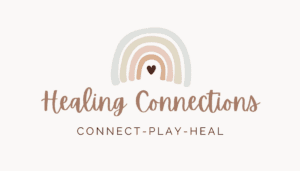Why Is Play Therapy Therapeutic?
Play therapy is a powerful and effective approach used to help children express their thoughts and emotions in a safe, supportive environment. For children, play is their natural language. Through play, they can communicate feelings, work through challenges, and develop coping strategies when words alone may not be enough.
In play therapy sessions, trained therapists use toys, art materials, and other play-based tools to help children express themselves freely. This process allows children to process complex emotions, develop problem-solving skills, and build emotional resilience. Play therapy is particularly effective for children experiencing anxiety, trauma, behavioral issues, and social difficulties.
What Should Parents Expect?
When your child begins play therapy, it is normal to have questions about the process. Here are a few key things to expect:
-
A Safe, Child-Centered Environment: Sessions are held in a welcoming safe space filled with toys, art supplies, and other tools designed to encourage self-expression.
-
Confidentiality and Communication: Therapists maintain a balance between protecting your child’s privacy and keeping you informed. Regular check-ins help you understand your child’s progress without breaching their sense of safety and trust.
-
Individualized Approach: Each child is unique, and the therapy process is tailored to meet their specific needs and challenges. Therapists may incorporate a variety of play techniques, including sand tray therapy, role-playing, and creative arts.
-
Ongoing Collaboration: Parents play a crucial role in the therapeutic process. Therapists often provide guidance on how to support your child at home and may suggest strategies to reinforce progress.
How Long Does It Take to See Progress?
The timeline for progress in play therapy varies from child to child. Some children may show improvements in a few weeks, while others may need several months to experience significant changes. Factors influencing the pace of progress include the child’s age, the nature of their concerns, the quality of the therapeutic relationship, and the consistency of therapy sessions.
Typically, therapists will discuss goals early in the process and provide regular updates. It is essential to approach therapy with patience, as healing and growth take time.
What If I Don’t See Any Improvements Right Away?
It is common for parents to feel concerned if they do not observe immediate improvements. Here are some important things to keep in mind:
Therapy Takes Time: Emotional healing and behavioral change are gradual processes. Children often need time to build trust with the therapist before they can fully engage.
Invisible Progress: Not all changes are immediately visible. Sometimes, shifts in thinking, emotional regulation, or social interactions may be subtle but significant.
Open Communication: If you have concerns, discuss them with your child’s therapist. They can provide insights into your child’s progress and adjust approaches if needed.
Consistency Matters: Regular attendance and reinforcing therapeutic techniques at home can enhance the effectiveness of play therapy.
Play therapy is a journey of healing, self-discovery, and growth. By fostering patience, trust, and open communication, parents can support their child through the therapeutic process and pave the way for long-term emotional well-being.
If you have questions or would like to learn more about play therapy, feel free to reach out to your play therapist.

